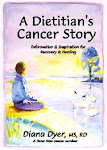I first read that book expecting to 'breeze through it'. No.............I did not. In fact I read it three times, including reading most of it aloud to my husband the second time I read it. It is a beautiful, deep, and poignant book. In fact it is not an overstatement to say it is the most beautiful book I have read without photographs. Through the words themselves of the immigrants, from interviews by the author (who is really the editor), I could see these gardens and see their lives. In addition the words themselves brought tears of happiness, sadness, even anger (which is just deeper sadness), and also hope to my eyes and heart.
I have since recommended this book to many dietitian/nutrition colleagues who teach a course in community nutrition, while also recommending it to their students.
There are so many reasons to keep people connected to growing food.
In the New York Times article, one woman interviewed said it best, in fact, she said it 'all'.
...........Ms. Makarutsa was inspired to farm, she said, after tasting supermarket tomatoes. She uses the Zimbabwean phrase “Pamuzinda” to describe her seven-acre plot.
Roughly translated, she said, “It means ‘where you belong.’ "
I could not have said it better.
The refugees highlighted in this article along with those who were included in the book The Earth Knows My Name are doing the exact words that are the tag line of my blog. They all inspire me.
"Cultivate your life - you are what you grow - inch by inch, row by row"
Diana Dyer, MS, RD


No comments:
Post a Comment